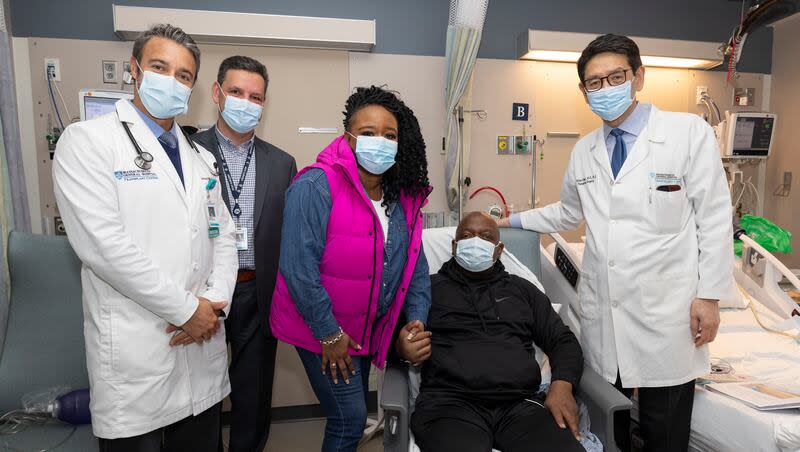Man who received first pig kidney transplant home recovering now

The world’s first living recipient of a kidney from a genetically altered pig has gone home to recover after the medical milestone transplant.
Richard “Rick” Slayman, 62, of Weymouth, Massachusetts, released a statement marking the occasion: “This moment — leaving the hospital today with one of the cleanest bills of health I’ve had in a long time — is one I wished would come for many years. Now it’s a reality and one of the happiest moments of my life.”
He added, “Today marks a new beginning not just for me, but for them as well,” referring to the thousands waiting for a kidney transplant.
As the Deseret News reported, surgeons at Massachusetts General Hospital transplanted the organ in a four-hour surgery on March 16. Slayman had been living with end-stage kidney disease. The groundbreaking operation was his second kidney transplant.
Type 2 diabetes and high blood pressure had damaged his kidneys to the point of needing dialysis. In 2018, he received a kidney from a deceased donor, but after five years, it began to fail, sending him back to dialysis and a slew of health-related complications to the point that he required surgical interventions regularly.
Gene editing to save lives
An announcement from Massachusetts General Hospital said that the pig kidney required 69 different genomic edits so it could be used for human transplant. The Food and Drug Administration allowed the operation “under a single FDA Expanded Access Protocol — known as compassionate use — granted to a single patient or group of patients with serious, life-threatening illnesses or conditions to gain access to experimental treatments or trials when no comparable treatment options of therapies exist.” Slayman also received injections of novel immune-suppressing drugs that were provided by pharmaceutical companies Eledon and Alexion.
A news release from Mass General at the time of the transplant said that a company called eGenesis, in Cambridge, Massachusetts, used gene-editing technology to “remove harmful pig genes and add certain human genes to improve its compatibility with humans. Additionally, scientists inactivated porcine endogenous retroviruses in the pig donor to eliminate any risk of infection in humans. Over the past five years, (the hospital) and eGenesis have conducted extensive collaborative research, with the findings published in Nature in 2023.”
Of note, the Mass General Brigham Health system pioneered the first successful organ transplant in 1954 at Brigham and Women’s Hospital. That surgery, too, was a kidney transplant.
Per The New York Times, “The transplant and its encouraging outcome represent a remarkable moment in medicine, scientists say, possibly heralding an era of cross-species organ transplantation.”
The article noted that two previous transplants from pigs that had been genetically modified failed. Those heart transplant recipients died a few weeks later, one probably from organ rejection. But the kidney now residing in Slayman’s abdomen “is producing urine, removing waste products from the blood, balancing the body’s fluids and carrying out other key functions,” according to his doctors at Massachusetts General Hospital, the Times reported.
Slayman expressed hope that he’d be allowed privacy as he recovers.

